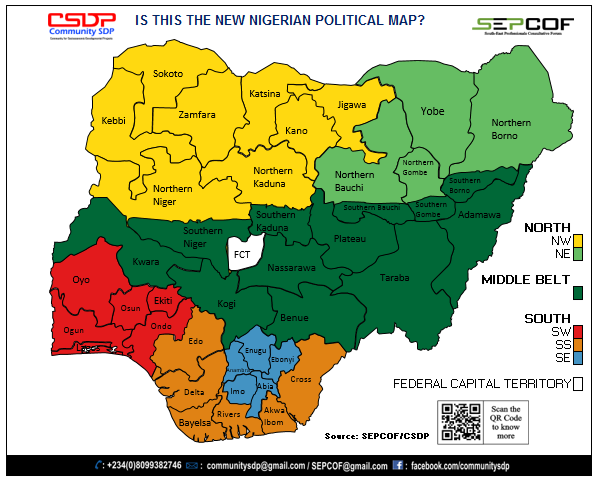It doesn't matter because the North has allegiance of the smaller ethnic groups/nationalities so they'll tend to have the numbers to always favor. If you look at the map below, the "North" which is usually interchanged with the Fulani-Hausa bloc, isn't as big of bloc as it currently is understood.

However, one reason the North has been able to consolidate power has been due to the alignment of the middle belt (which doesn't have a clear cut ethnic majority) into the "North". See this map below.

So the North has the numbers to always counter a southern based movement. Additionally, the Yorubas (represented in the South-West) has usually aligned themselves with the Northern political elite in return for favourable allocations for Lagos. It also doesn't help that the South-South and the South East (what would have been Biafra) aren't aligned on objectives.
There is a business case for Nigeria, do not get it twisted. But the current incentives aren't well aligned.
Interesting, I just learned a little about Nigerian politics not that long ago and I find it pretty fascinating. Biafra was a very sad situation. So basically with the central region playing as an ethnically neutral buffer, that’s swung influence to the north? While the south is divided East/West by differing allegiances (Yoruba working with the north vs the shattered pieces of Biafra).
Would it be a safe assumption on my part to think that the Deep South and other parts of what was to be Biafra is in this condition not just because of the war but also because of the need to maintain control in the delta?


